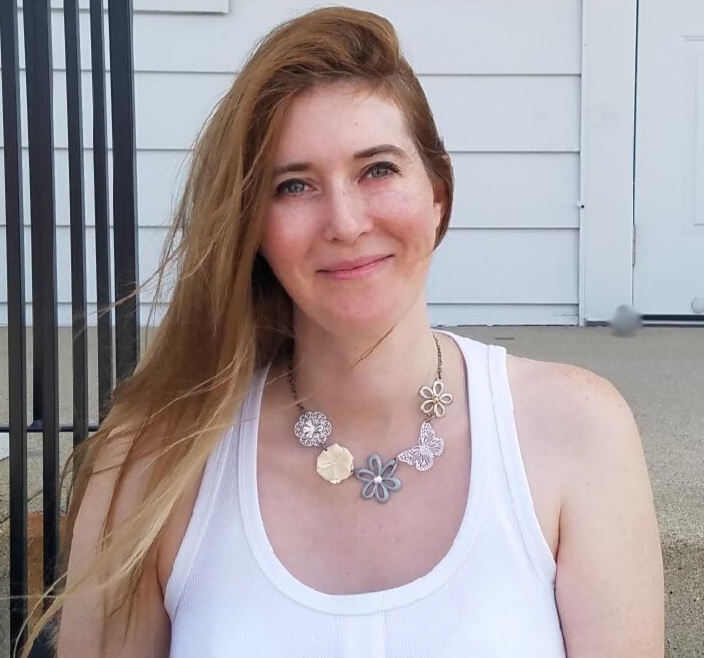What Is Spiritual Anxiety and How Should Christians Navigate It?

As the term spiritual anxiety continues to make its way into the cultural lingo, many are left wondering what exactly it is and what they should do about it. Though the term may be relatively new, the idea behind it is anything but modern.
Spiritual anxiety is a general sense of unease with one’s chosen path of seeking God or, for the Christian, a feeling of being unsettled with the way in which you are applying the Word of God in your life. Common questions among individuals dealing with this sort of anxiety come in the form of questioning how to apply their belief system generally or, more specifically, how to properly apply it to their lives. Thoughts like, am I following God the way that I should or is there a different course I should take to relate to the Almighty, often invade the thoughts of a person who is dealing with this type of fear.
Doubt within the Christian Walk
For Christians, doubt and worry about doing things the right way can feel overwhelming. Maybe they were raised in one church and, as adults, they joined a different denomination with different rules and a different culture. Perhaps other Christ followers have struggled with understanding a particular passage in the Bible and have felt uncertain about how to apply said passage to their lives. Christians should remember James 1:5, which tells us that God gives wisdom abundantly to those who ask it of Him.
“If any of you lacks wisdom, let him ask of God, who gives to all liberally and without reproach, and it will be given to him,” the Scripture states.
Christians should also never abandon the practice of seeking godly counsel from a trusted friend or pastor. Too many Christ followers try to go it alone and are left with loneliness and confusion. Instead of being an island unto themselves, they should reach out to other like-minded, mature Christians to help them with their questions. It’s not good for an individual to carry the burden of confusion or spiritual angst alone. Proverbs 19:20 teaches that it’s profitable to “listen to advice and accept instruction, that you may gain wisdom in the future.”
Christians who find themselves on more steady ground should remember their brothers and sisters in Christ who may need a listening ear or word of guidance. According to Galatians 6:2, we should “bear one another’s burdens, and so fulfill the law of Christ.”
The Confusion of Mixing Faiths
As some Christians struggle with questions about biblical application, other individuals, in an effort to relieve spiritual anxiety, are taking to the practice of religious pluralism.
Fretfulness and disquietude reach much higher levels in individuals practicing religious pluralism. Their anxiety results in a non-committal relationship with several different religions and world views and precludes them from keeping their eyes fixed on Christ, who is their sole Redeemer.
A person practicing religious pluralism may have a buddha statue in their kitchen, healing crystals they found in a local occult shop in their bedroom, and a crucifix hanging on the wall in their living room. They are so fearful about following the correct path that they attempt to follow as many paths as they stumble upon, hoping that one of them will be the right one.
However, there is a practical flaw and a fatal flaw behind this line of thinking.
The practical flaw behind this practice is that an individual must attempt to fit a square peg into a circle hole. For instance, Hindus worship many gods, New-Age practitioners rely on the earth’s minerals and stones for healing, and Buddhists focus on self-enlightenment through meditation and don’t subscribe to a god at all. An individual must, therefore, become unserious toward each religion in order to practice many of them. If Buddhism tells you to, in essence, become your own mini-god, how then could you worship a plethora of Hindu gods? By cherry-picking and combining the parts of a religion that strokes an individual’s momentary need to hear what they want to hear, they end up with a rotten concoction of self-deceit that will cause them to perpetually miss the mark of true connection with their Maker.
Whether consciously or not, individuals involved in this lifestyle trivialize the very God they so desperately seek. This is the fatal flaw. The flaw that will lead to eternal death and enmity with our Almighty Creator.
What it Means to Fear God
At the end of the day, an individual must ask him or herself two crucial, life-altering questions. Question one: is there a Creator of the universe? Question two: do I fear this Creator and want to reconcile with Him?
Regarding question one, as a washing machine did not come into being after lying around a junkyard for six billion years, so the universe, however gradually the world would have you believe, did not simply put itself together.
The arrangement of the universe and creation itself screams out that there’s a God. From the exceedingly precise ordering of the stars down to the perfect structure and sequencing of cellular life, the universe must have been ordered and arranged by a creator.
Once we conclude there is, indeed, a God, we must contend with question number two. Do I fear this Creator and want to reconcile with Him? To answer this question, we must have a clear understanding of the definition of fear. For the sake of brevity, we won’t explore irrational fears or phobias, instead we’ll focus on the healthy ones.
To fear a thing simply means we want to be in the right relationship with it. Some fear driving too fast, others snakes, while still others, fear a particular person. This is because driving too fast can cause a car accident and be dangerous, and depending on the snake, its bite can be venomous and deadly. And, in regard to people, fear acts as a warning signal. If it’s a parent or disciplinarian, we want to avoid getting grounded or losing driving privileges. If it’s an abuser, our fear tells us to stay away and cut ties.
All of these fears act to steer us down a wiser path with one basic commonality: don’t place ourselves in danger and get into a right relationship with our fear source. Whether it’s slowing down on the highway, avoiding venomous snakes, following parents’ rules, or even cutting ties with abusive people in our lives, our fears trigger us to cultivate healthier habits.
Since we know that God created us and gave us an entire universe to live in, He is the ultimate authority and relationship with which we must fear and come into alignment. We must fear Him in order to revere Him and want a right relationship with Him. Because, ultimately, it is God who made our souls, and it is God alone who can preserve them down through infinity.
“And do not fear those who kill the body but cannot kill the soul. But rather fear Him who is able to destroy both soul and body in hell,” Matthew 10:28.
We know that God is perfection itself, the source from which everything good and perfect springs forth.
“Every good gift and every perfect gift is from above and comes down from the Father of lights, with whom there is no variation or shadow of turning,” James 1:17.
Because of His perfection and our clear sinfulness, we must put our faith in His Son, Jesus Christ, in order to be reconciled with Him. We owe an unpayable debt to God because of our sins. But God loves us so much that He sent His only Son, Jesus, who had no sin, to die for us and make the payment for our sins.
Jesus Christ, who lived a perfect and sinless life, stepped into our place on the cross and gave His life so that our souls could be saved and our sins forgiven if we put our trust in Him. He died and rose from the dead so that we may live eternally in Heaven. Jesus is our great Reconciler and our Salvation. He, and He alone, is the bridge between us and our Heavenly Father. Without Jesus, we cannot cross the great divide between us and God. We will certainly fall into the pit of hell and suffer eternal death.
Trying to cross on our own merit, or based on how much we’ve meditated, or how many Buddhas we have in our homes, or how many healing crystals we possess, is silliness to God. We must admit we are sinners who cannot save ourselves and place our trust in Jesus to save us. He is our Great Rescuer.
Ask God for Clarity When Spiritual Anxiety Returns
If we should ever feel anxious about that fact, we need to ask God, who is Love itself and the very source of mercy and kindness, to help our hearts understand that which confuses us.
God is not the author of confusion and would not have it that any of His creation should perish. We need only to trust Him, and He will bring us through the valley of confusion and anxiety and place our feet on solid, settled ground.
“He also brought me up out of a horrible pit,
Out of the miry clay,
And set my feet upon a rock,
And established my steps.”
For Christians and those considering accepting that Christ died for them to save them, it is critical to remember that Jesus will never leave or forsake those who love Him.
“My sheep hear My voice, and I know them, and they follow Me. And I give them eternal life, and they shall never perish; neither shall anyone snatch them out of My hand. My Father, who has given them to Me, is greater than all; and no one is able to snatch them out of My Father’s hand. I and My Father are one.”
Photo Credit: ©iStock/Getty Images Plus/vladans

Vicky has written news articles on topics including human trafficking, Supreme Court rulings, politics, Christian persecution, the economy, social issues, and much more. She loves to learn and earned her bachelor’s degree in English Literature and Creative Writing from DePaul University. When she’s not tackling the current news cycle or interviewing someone for a story, you can probably find her writing poetry, taking pictures, or spending time with her husband. Vicky loves music, concerts, and all things Paris. You can find more of Vicky’s articles, scholarly papers, and even some of her poetic reflections at https://vlarias7.journoportfolio.com/
Originally published April 04, 2025.





